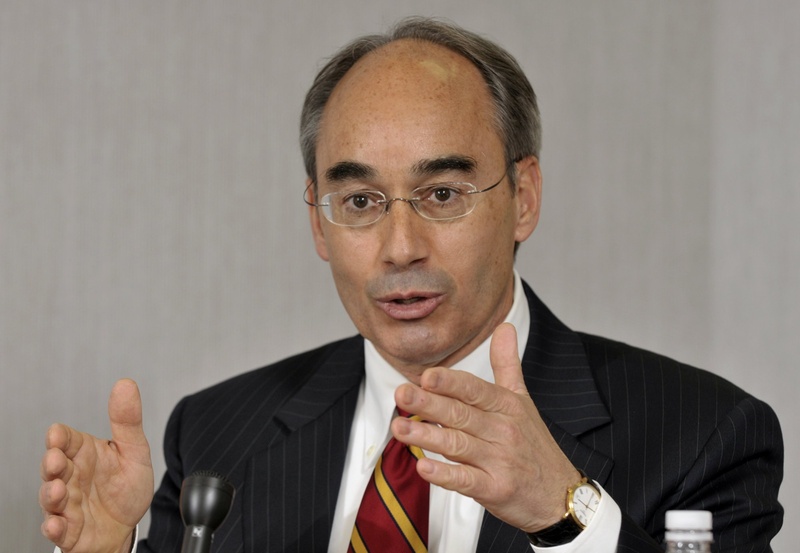AUGUSTA — Two years ago, Bruce Poliquin kicked off his U.S. Senate campaign at a tea party event and courted voters within the ultraconservative movement. But Poliquin, who now hopes to become the first Republican to fill the congressional seat in Maine’s sprawling 2nd District in nearly two decades, rejects being labeled as a tea party candidate.
The former state treasurer, who faces state Sen. Emily Cain in November, has received support from a national group and lawmaker aligned with the limited-government tea party movement, which Democrats are using as ammo as they attempt to paint his views as extreme.
But Poliquin says he doesn’t believe in being defined by any label, has never been a member of the tea party and isn’t being endorsed by any local groups. Furthermore, his message and record appeal to all Mainers who are concerned about things like high taxes, soaring energy costs and burdensome business regulations, he said.
“I have support from across the political spectrum, and I am very proud of it,” he said. “A lot of liberal Democrats like to attach a label to you and attack you that way, and I just reject that.”
Poliquin was among other candidates in the 2012 Republican primary for Maine’s open U.S. Senate seat who were competing for those conservative voters. He officially launched his campaign at a tea party event and highlighted his support from what his campaign called “one of the founders of Maine’s tea party movement.”
That same year, he touted his endorsement from Utah Republican Sen. Mike Lee, who gave the tea party response to President Obama’s most recent State of the Union address and said Poliquin would fight alongside himself and other senators with tea party credentials.
Poliquin lost in the primary, and the seat was filled by independent Angus King.
With his eye on the House seat in Maine’s vast rural district this year, Poliquin positioned himself as more conservative than his primary opponent, Kevin Raye, a former aide to retired moderate Sen. Olympia Snowe.
He framed Raye as a liberal career politician and highlighted his opponents’ refusal to sign a no-tax pledge. Poliquin also trumpeted his endorsement by FreedomWorks, a Washington, D.C.-based conservative grassroots organization that’s widely considered to be aligned with the tea party movement.
Democrats proclaimed Poliquin’s victory in June a “tea party upset,” saying his “dangerous views are part of the wave of Tea Party candidates now becoming the establishment messengers for the Republican party.”
Ron Schmidt, a political science professor at the University of Southern Maine, said that while Poliquin may not consider himself part of the tea party, “he is a reflection of the turn to the right that successful primary candidates have taken throughout the country.”
But the label can carry negative connotations and unfairly portray a candidate as radical, said Cynthia Rosen, who was among the leaders of the tea party movement in Maine at its height in 2010. She said she doesn’t consider herself a tea partier anymore because she believes the movement has been absorbed by the establishment Republican Party.
Send questions/comments to the editors.


